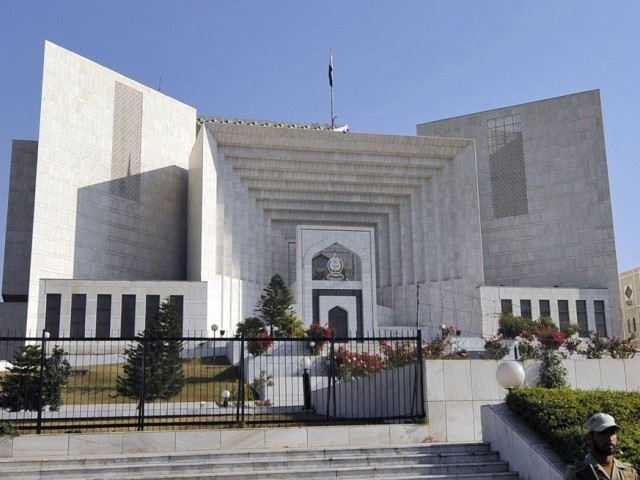Acquitted at last: After 12 years in jail, convict set free by SC
Shariat Appellate Bench releases the judgment over a five-year-old appeal against FSC’s verdict

“He be set free forthwith if not required in any other case,” said the five-judge Shariat Appellate Bench of the apex court, headed by Justice Ejaz Afzal Khan, which released the judgment over a five-year-old appeal against Federal Shariat Court’s July 15, 2008, verdict wherein the appellant namely Imran was found guilty of the charges.
Setting aside his conviction and all sentences awarded
to him, the court freed
Fazal Elahi who had earlier been convicted of kidnapping and killing a nine-year-old girl in June 2002.
The court observed that when any case rests entirely on circumstantial evidence, then each piece of evidence collected must provide all links making out one straight chain where on one end its noose fit in the neck of the accused and the other end touches the dead body.
“Any link missing from the chain would disconnect and break the whole chain to connect the one with the other and in that event conviction cannot be safely recorded and that too on a capital charge,” it maintained.
The top court while taking up the appeal against FSC judgment had found that entire edifice/structure of the prosecution case has four circumstantial evidences. Justice Dost Muhammad Khan while authoring judgment deeply examined these four evidences.
The Shariat Appellate Bench observed that with all respects to the FSC bench, these precautions and judicial care so required, was not observed and view of the trial Judge with regard to the guilt of the appellant was endorsed by it. Thus, the approach to the evidence in the case was not in accordance with the principle, it asserted.
Justice Khan examined the last seen evidence provided by two witnesses. “Both [witnesses] are related to the complainant and are frequent visitors to his residence, also sharing occasions of joys and mourning but they kept mum for more than a week after the incident,” he observed.
The court also observed that the legal worth of the extra judicial confession too is almost equal to nought, keeping in view the natural course of events, human behaviour, conduct and probabilities, in ordinary course.
Published in The Express Tribune, November 15th, 2014.



















COMMENTS
Comments are moderated and generally will be posted if they are on-topic and not abusive.
For more information, please see our Comments FAQ